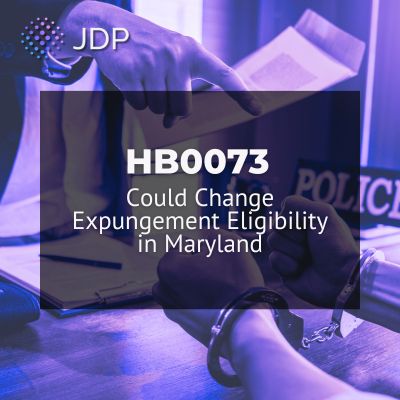Feb 29, 2024
Maryland’s General Assembly recently considered closing the state’s criminal expungement eligibility rules. Closing these rules could benefit many individuals. For example, it would help eliminate the obstacles those with criminal records encounter when obtaining housing or employment.
The General Assembly will consider House Bill 0073 (HB0073) to close this gap. It would alter several definitions in the Maryland Code. HB0073 would clearly define the timeliness for expunging eligible state criminal records, starting when the individual completes a sentence.
This consideration comes after a 2022 case concerning those hoping for a clean slate. An opinion from the appellate court effectively denied expungement eligibility due to the interpretation of several terms. According to the General Assembly, changing several definitions has proven crucial for many people.
One example concerns denied expungement petitions. In this example, an individual had to complete a year of supervised probation for misdemeanor theft and received a one-year incarceration sentence. However, the courts suspended his sentence. Furthermore, the individual violated his probation by having cannabis products in his possession. He received a four-day jail sentence for the violation.
The current law states that anyone with a misdemeanor conviction for theft may qualify for expungement five years after their sentence is satisfied. As a result, a person could file a petition for an expungement five years after they completed their sentence if sentenced to probation. The law also addresses those sentenced to incarceration. Such individuals may qualify to petition for expungement five years after their incarceration ends.
However, the Court of Appeals expressed differing thoughts. According to the Court, “satisfied” did not simply mean “completed.” The Court also explained how it interpreted “satisfied.” For example, if an individual’s probation closes unsatisfactorily, it is not satisfied. Therefore, the person will never become eligible for expungement.
Passing HB0073 would address the differing interpretation. It would define the time a person must wait to expunge their records. For example, regardless of satisfaction, individuals must complete their sentence before becoming eligible. This change would allow more individuals to qualify for expungement, as many have received denials due to the differing interpretation of “satisfied.”
It would also help those who violated their probation. According to HB0073, violating probation will not automatically disqualify individuals. Though they can maintain eligibility, it may take longer to expunge their records. It remains uncertain whether HB0073 will pass. Maryland’s General Assembly will continue reviewing and debating the merits and wording for now.
Disclaimer:
Information provided here is for educational and informational purposes only and should not constitute as legal advice. We recommend you contact your own legal counsel for any questions regarding your specific practices and compliance with applicable laws.
